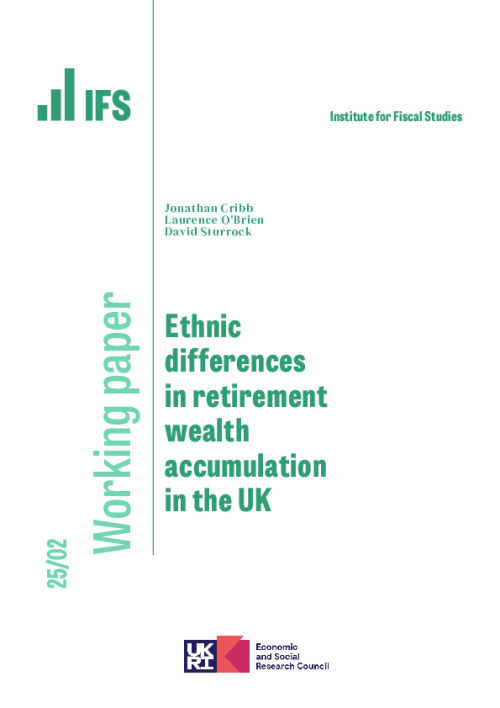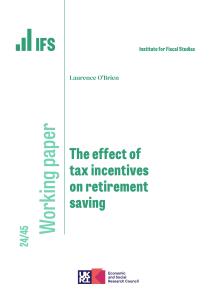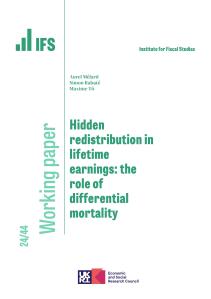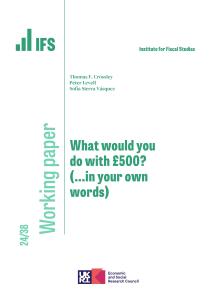Downloads

Download working paper here
PDF | 811.09 KB
Private pensions constitute the largest component of household wealth in the UK, and the vast majority of employees are automatically enrolled into workplace pension plans. Drawing on employer-reported pension data matched with the population census, we document that Bangladeshi and Pakistani employees are around twice as likely to opt out of their workplace pension as those from other ethnic backgrounds. Employees opting out do not receive their employer’s contribution to their private pension plan or the tax subsidies given to private pension saving. The financial implications of this can be substantial: we estimate that a typical Pakistani or Bangladeshi employee who consistently opts out of their private pension could have retirement income around 60% higher by saving in that pension. These higher opt-out rates exist within-firm and cannot be explained by economic differences across ethnic groups; instead, we present a set of evidence pointing to the importance of Islamic religious beliefs in driving the higher opt-out rates, consistent with Islamic teachings on savings.
Authors

Associate Director
Jonathan is an Associate Director and Head of Retirement, Savings and Ageing sector, focusing on pensions, savings and later-life economic activity.

Research Economist
Laurence is in the Retirement, Savings and Ageing sector. His work focuses on people’s savings decisions and on economic activity in later life.

Senior Research Economist
David’s research covers household wealth, intergenerational transfers, social mobility, pensions taxation, and health and work at older ages.
Working Paper details
- DOI
- 10.1920/wp.ifs.2025.0225
- Publisher
- Institute for Fiscal Studies
Suggested citation
J, Cribb and L, O'Brien and D, Sturrock. (2025). Ethnic differences in retirement wealth accumulation in the UK. 25/02. London: Institute for Fiscal Studies. Available at: https://ifs.org.uk/publications/ethnic-differences-retirement-wealth-accumulation-uk (accessed: 23 January 2025).
Grant
More from IFS
Understand this issue

Are people saving enough into their pensions?
20 September 2024

Inheritance tax and farms
The Autumn 2024 Budget brought some agricultural property into inheritance tax. What are the changes? Who will be affected? Were they a good idea?
25 November 2024

We can’t have any more budgets where speculation is running wild
Rachel Reeves needs to deliver a clear statement of intent for the remainder of this government’s time in office
28 October 2024
Policy analysis

Ethnic differences in private pension participation after automatic enrolment
What are the drivers of ethnic gaps in private pension participation rates and what consequences will these gaps have for future retirement incomes?
23 January 2025

Share of 25- to 34-year-olds living with parents up by over a third since the mid 2000s
The rise in people living with their parents has been concentrated among those in their late 20s and varies substantially by ethnicity.
11 January 2025

Exposure to air pollution in England, 2003–23
We set out how air pollution (PM2.5) has changed across England and explore inequalities by ethnicity, income deprivation, region and age.
6 December 2024
Academic research

The effect of tax incentives on retirement saving
This paper estimates the responsiveness of retirement saving to tax incentives for employees in Great Britain.
15 October 2024

Hidden redistribution in lifetime earnings: the role of differential mortality
Life expectancy gaps between gender and income groups are large and generate notable implicit redistribution in lifetime earnings via pension systems.
9 October 2024

What would you do with £500? (...in your own words)
12 September 2024